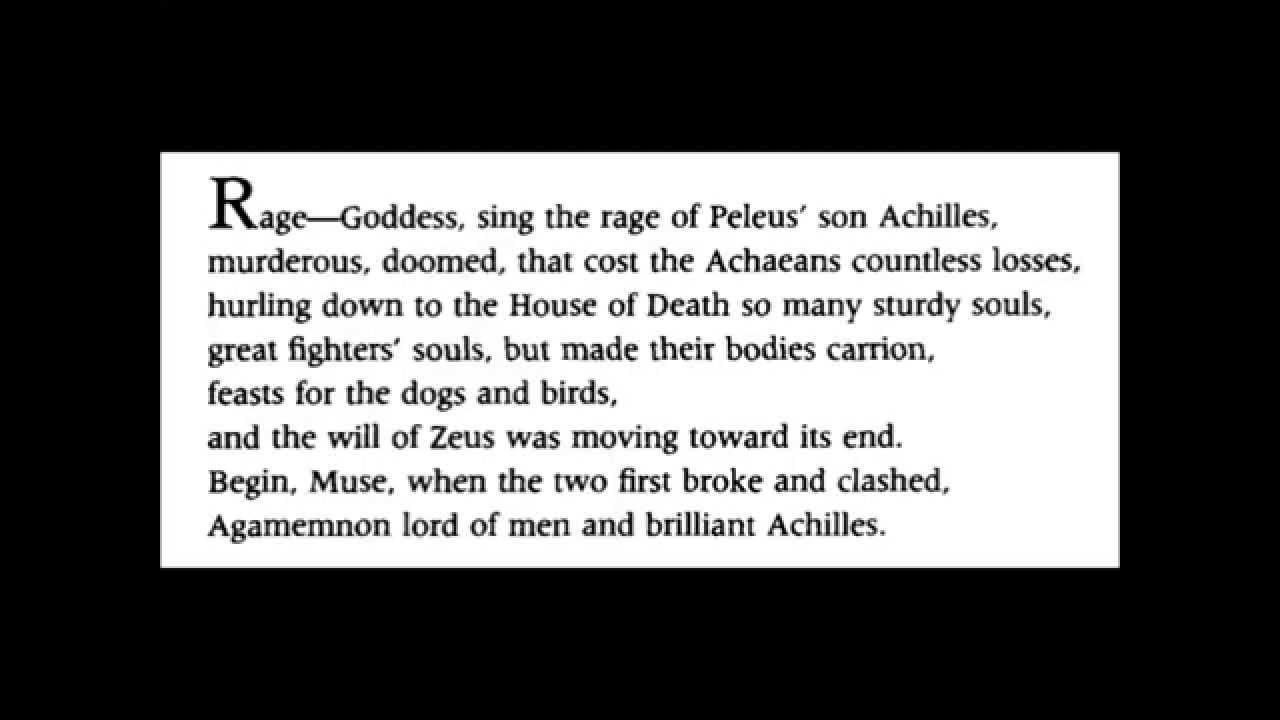
The Homeric Question Charlotte Catallo Tutoring
The Iliad is an Ancient Greek epic poem by Homer that was first published around 762 BCE. Summary Read one-minute Sparklet summaries, the detailed book-by-book Summary & Analysis, the Full Poem Summary, or the Full Poem Analysis of The Iliad .
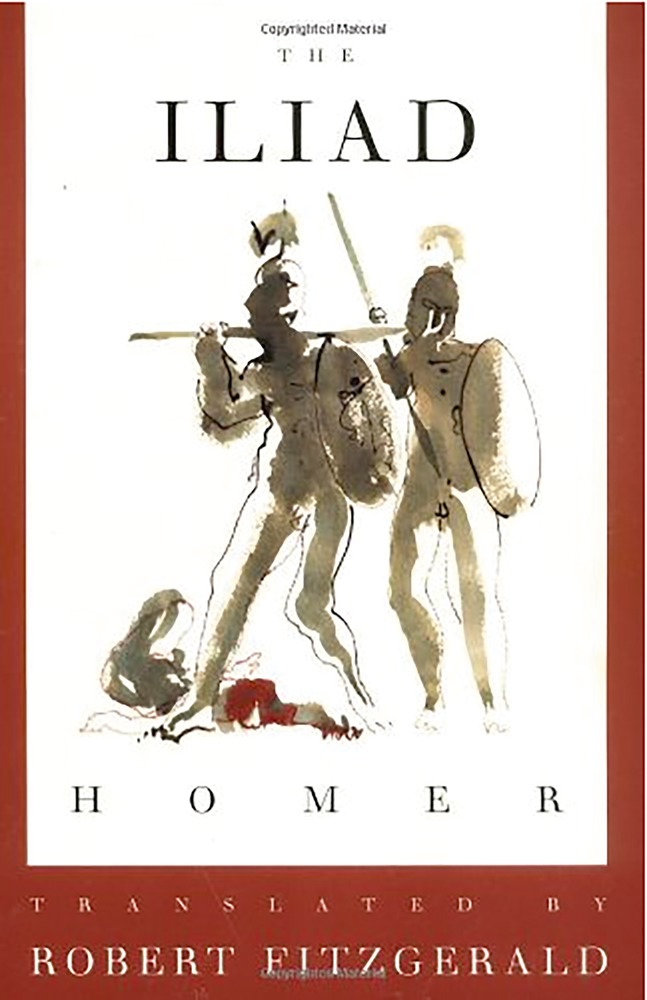
The Iliad Homer Macmillan
The Iliad, Book I, Lines 1-15. Homer. RAGE: Sing, Goddess, Achilles' rage, Black and murderous, that cost the Greeks. Incalculable pain, pitched countless souls. Of heroes into Hades' dark, And left their bodies to rot as feasts. For dogs and birds, as Zeus' will was done.

Iliad, The Resource Guide for PreAP* and AP* Applied Practice
Full Poem Summary. Nine years after the start of the Trojan War, the Greek ("Achaean") army sacks Chryse, a town allied with Troy. During the battle, the Achaeans capture a pair of beautiful maidens, Chryseis and Briseis. Agamemnon, the leader of the Achaean forces, takes Chryseis as his prize, and Achilles, the Achaeans' greatest warrior.

The Iliad of Homer by Homer and Richard Martin Book Read Online
| Summary of Iliad Book I | Main Characters | Notes | Iliad Study Guide Song of the Wrath of Achilles . In the very first line of the Iliad, the poet addresses the Muse, who inspires him with song, and asks her to sing (through him) the story of the wrath of the son of Peleus, aka Achilles.Achilles is angry with King Agamemnon for reasons shortly to be divulged, but first, the poet lays blame.

The Iliad Kindle edition by Homer, Barry B. Powell, Ian Morris
feasts for the dogs and birds, and the will of Zeus was moving toward its end. Begin, Muse, when the two first broke and clashed, Agamemnon lord of men and brilliant Achilles. The first lines of an ancient epic poem typically offer a capsule summary of the subject the poem will treat, and the first lines of The Iliad conform to this pattern.

Iliad & Odyssey Book by Homer, Stephanie Lynn Budin, Samuel Butler
The Odyssey: Sing in me, Muse, and through me tell the story. of that man skilled in all ways of contending, the wanderer, harried for years on end, after he plundered the stronghold. on the proud height of Troy. He saw the townlands. and learned the minds of many distant men, and weathered many bitter nights and days.
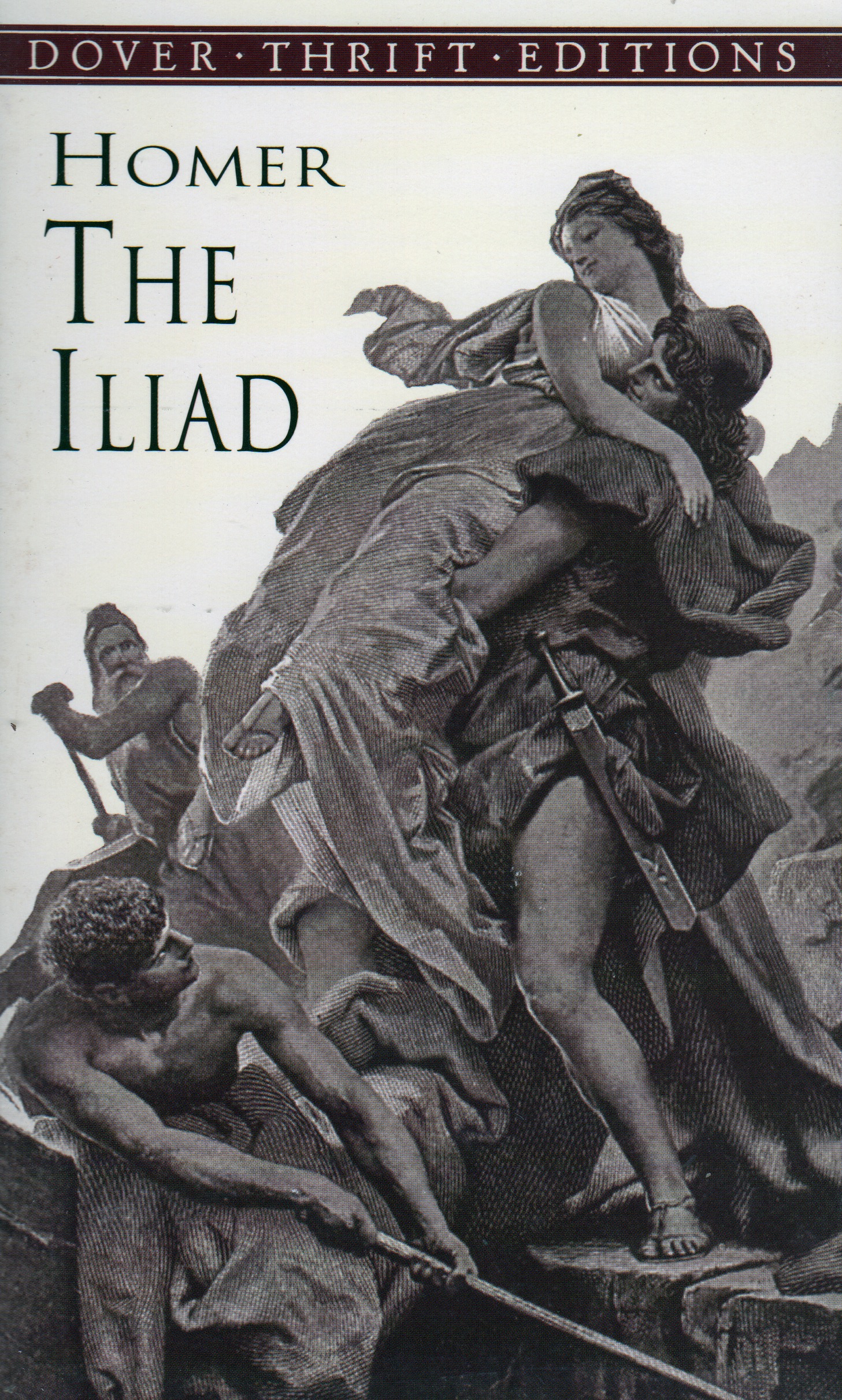
The Iliad by Homer Cosmotheism
The introductions to the Iliad, Odyssey and Aeneid set the scene for the poems and it is interesting to compare and contrast them, even in translation with students who are only studying Latin or neither. The opening lines from the Iliad, in which Homer describes the dispute between Agamemnon and Achilles and its effect on the Greek soldiers.

The Iliad as an Oratory A Warning to a Civilization
Homer, The Iliad, Scroll 1, line 1. Sing, O goddess, the anger [mênis] of Achilles son of Peleus, that brought countless ills upon the Achaeans. Many a brave soul [psukhê] did it send hurrying down to Hades, and many a hero did it yield a prey to dogs. and vultures, for so was the will of Zeus fulfilled from the day on which the son of Atreus.

This video is processing it'll appear automatically when it's done.
Summary. The poet invokes a muse to aid him in telling the story of the rage of Achilles, the greatest Greek hero to fight in the Trojan War. The narrative begins nine years after the start of the war, as the Achaeans sack a Trojan-allied town and capture two beautiful maidens, Chryseis and Briseis. Agamemnon, commander-in-chief of the Achaean.
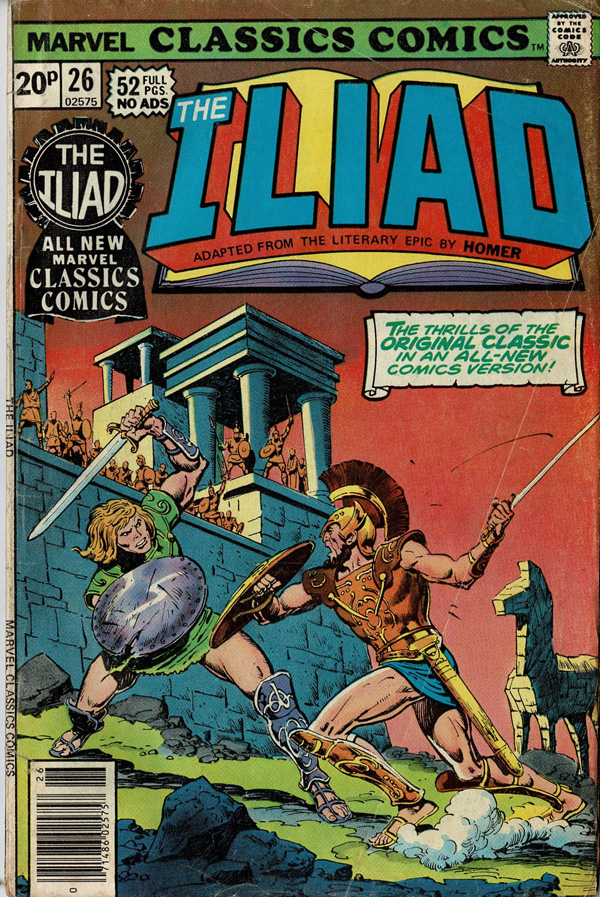
The Iliad CCS Books
The Iliad, Book I, Lines 1-14. Achilles' wrath, to Greece the direful spring Of woes unnumber'd, heavenly goddess, sing! That wrath which hurl'd to Pluto's gloomy reign The souls of mighty chiefs untimely slain; Whose limbs unburied on the naked shore, Devouring dogs and hungry vultures tore.

The Iliad Audiobook by Homer, read by Alfred Molina
Here are the first seven lines of Homer's "Iliad":. [I am of two minds about Mr. Fagles' repetition of "rage" in his first line.] 3. The expansive similes in the opening lines are followed by others, not as successful, in the second section. 4. The overall natural setting, along with phrases, as "leaped like the roe," seem.

A FourthCentury Fragment Of The First Book Of Homer’s Iliad Valuable
lines 568ff. [1] The wrath sing, goddess, of Peleus' son, Achilles, that destructive wrath which brought countless woes upon the Achaeans, and sent forth to Hades many valiant souls of heroes, and made them themselves spoil for dogs and every bird; thus the plan of Zeus came to fulfillment, [5] from the time when 1 first they parted in strife.

Classics Illustrated 077 The Iliad (1950) comic books
Homer. The Iliad with an English Translation by A.T. Murray, Ph.D. in two volumes. Cambridge, MA., Harvard University Press; London, William Heinemann, Ltd. 1924. The Annenberg CPB/Project provided support for entering this text. Purchase a copy of this text (not necessarily the same edition) from Amazon.com
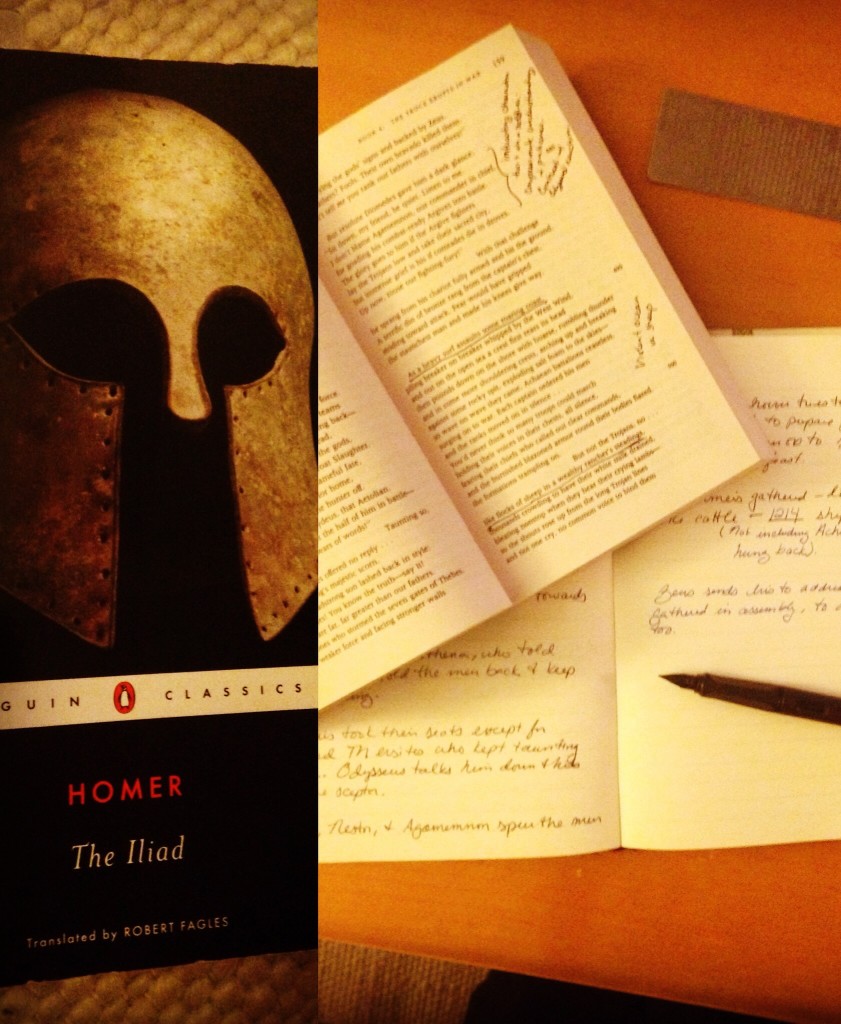
The Iliad Kenia Sedler
If I recite the first line of the Iliad slowly, hopefully you can hear the distinction between the feet: ME nin a / EI de the / A PE / LE i a / DEO akh i / LE OS. You might have been able to hear that there was a change in the middle of the line. The third foot has been replaced with a spondee. So in the first line of the Iliad, we have two.

(2015) The Iliad audiobook by Homer A.R.N. Publications Audio books
Iliad. Frontispiece of Homer's Iliad, translated by John Ogilby, 1660; engraving by Wenceslas Hollar. (more) Iliad, epic poem in 24 books traditionally attributed to the ancient Greek poet Homer. It takes the Trojan War as its subject, though the Greek warrior Achilles is its primary focus. For a discussion of the poetic techniques used by.

The Iliad by Homer Trojan war, Greek legends, Achilles
The Iliad. Anger, Strife, Alienation, and Reconciliation. The main theme of the Iliad is stated in the first line, as Homer asks the Muse to sing of the "wrath of Achilles." This wrath, all its permutations, transformations, influences, and consequences, makes up the themes of the Iliad. In essence, the wrath of Achilles allows Homer to present.